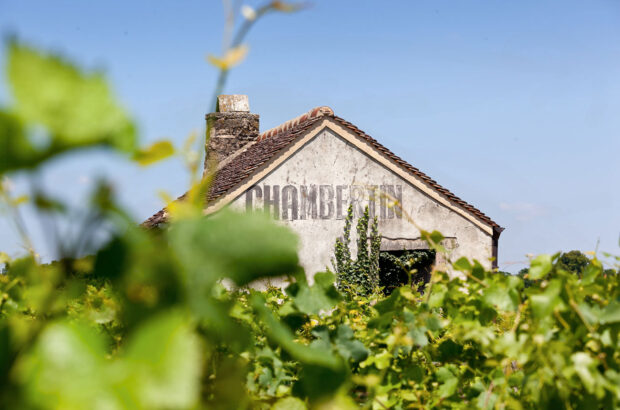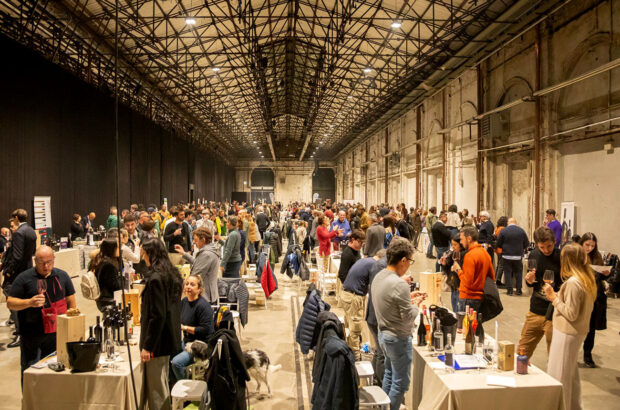Robert Parker has made a valiant effort to calm the enthusiasm around the 2005 Bordeaux vintage – but ends up unable to control his own 'jubilation'.
The influential American critic’s just-published report on the vintage in his quarterly publication the Wine Advocate opens with lines from The Man Comes Around, Johnny Cash’s spine-tingling hymn to the apocalypse.
‘There is a man going round taking names/and he decides who to free and who to blame…’ the lyric goes. ‘The man’ in the song is God, of course. But is Parker saying we shall have to wait until Judgement Day to see if this vintage is any good, or is he suggesting we need wait no longer?
Perhaps we shall never know. But what is certain is that the famously-eloquent wine writer runs out of superlatives when trying to get a grip on 2005. ‘I know I sound like a broken record,’ he admits, ’but here is another estate that may have produced its finest wine…ever.’
And that is just the perennially under-performing Rausan Gassies. Wine after wine is described in the same terms. Cos Laboury, Franc Mayne, La Gaffeliere, Le Gay, Kirwan, Haut Bailly, Smith Haut Lafitte, Larcisse Ducasse – each one is ‘the finest in decades’, the ‘best ever made’, ‘the finest since 1982, 1975…1947’. Valandraud Kasher is ‘a candidate for the world’s greatest kosher wine.’
Even the strongest words of criticism are merely the chiding of an indulgent nanny. Talbot is ‘somewhat light’, Pichon Lalande is ‘without the power, flesh and substance of previous vintages’, but is still ‘finesse-filled’.
In his preface (his shortest ever, he says) Parker carefully details some ‘sobering issues’. The Northern Medocs will require ‘many years of cellaring’ and many of the 2003s are better in those appellations; it would be ‘premature and risky’ to conclude the best of 05 will be better than the best of 03, or the best of 2000 or 98 on the right bank.
But still he eulogises the ‘compelling greatness’ of the vintage in Margaux, Graves, Pomerol and St Emilion, and its consistency and harmony across the region. The Sauternes seem excellent too, although it’s too early to judge, and the dry whites have ‘crisp acidity as well as serious weight, richness and texture’.
He also reinforces the point made by many critics that this is a vintage for everyone. The top wines may be ‘stratospheric’ in price, but ‘there will be an ocean of very high quality wine available at reasonable prices.’
Despite what he calls his ‘jubilation/excitement’, Parker doesn’t scatter top scores like confetti. Haut-Brion, Margaux and Latour, Pavie, Petrus, Ausone, Pavie Decesse and Pape Clement are the only potential 100-pointers.
Mouton and Lafite get a potential 96, the former ‘tannic, backward, concentrated, powerful’, and Lafite ‘lighter than expected’ though ‘impeccably pure’.
Parker favourites, especially the properties overseen by Michel Rolland, and the increasingly important consultant Stephane Derenoncourt, are smiled on. Rolland’s Destieux (‘earth, new saddle leather and grilled meat juices’) is dense yet ‘elegant and fresh’; Derenoncourt’s Larcisse Ducasse – 95-98 points – is ‘one of the monuments of the vintage.’
St Emilion’s Jonathan Maltus is another Parker star. His Le Dome has ‘Cheval Blanc-like complexity and finesse’ – and as for Cheval Blanc itself, it has a ‘vibrant, nuanced, delineated personality’.
And what of the wines the Maryland critic really likes? Latour is ‘colossal…a modern classic’, Petrus is ‘exceptionally pure…multilayered’; Margaux is ‘a candidate for 50+ years of evolution’. Pape Clement (Parker admires owner Bernard Magrez, and Rolland consults) is ‘a potential legend’. Ausone is ‘so ethereal it must be tasted to be believed’; Haut-Brion is ‘extraordinarily broad, rich, full-bodied’ and ‘a model of elegance and symmetry’.
Lastly, it seems no one – on either side of the Atlantic – can mention Chateau Pavie without lobbing a snowball or two. It is evident the very public spat between Parker and UK critic Jancis Robinson over the 2003 Pavie (he liked it, she didn’t) still rankles.
‘It is increasingly apparent that the simplistic bashing by some wine writers of Gerard Perse and his wines as well as the “American taste” is undermining their credibility – as it should,’ Parker begins his Pavie entry, before giving an ‘unquestionably thrilling’ wine a whopping 98-100, higher than Margaux, Haut Brion and Petrus, and on a par with Latour.
Written by Adam Lechmere






